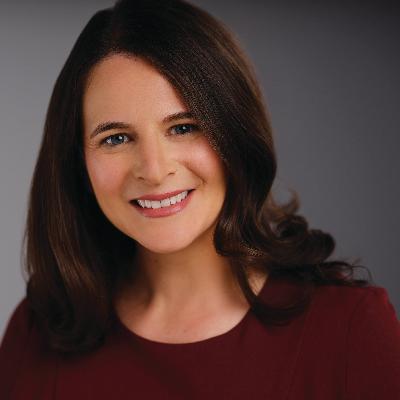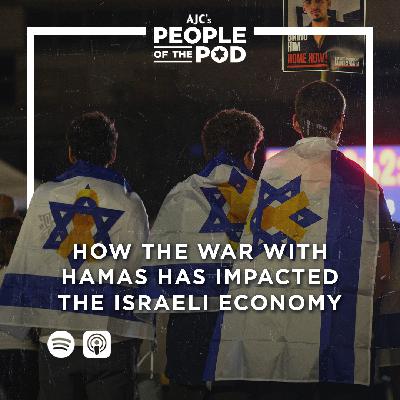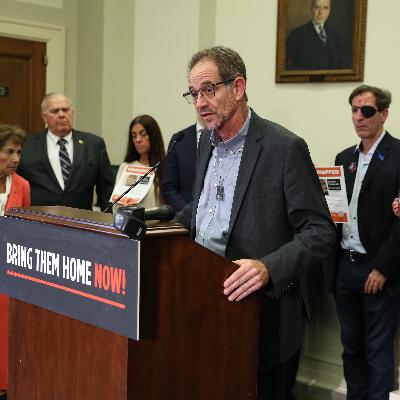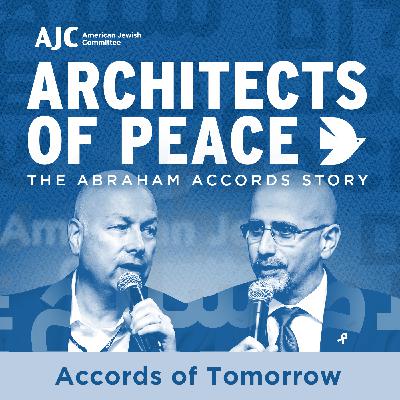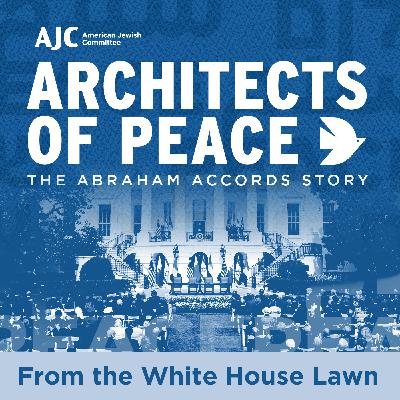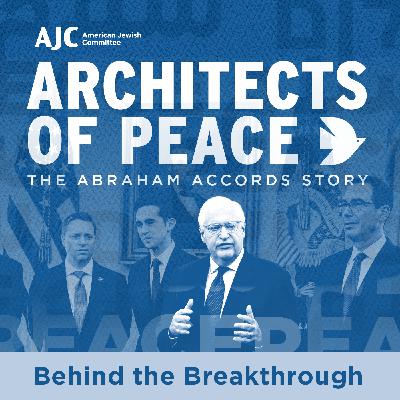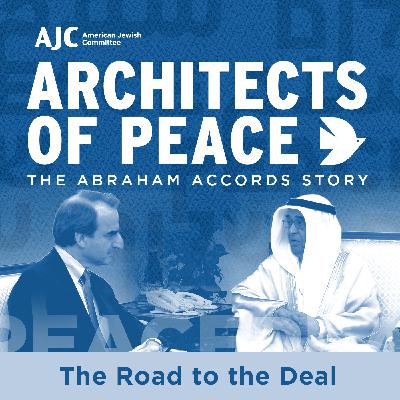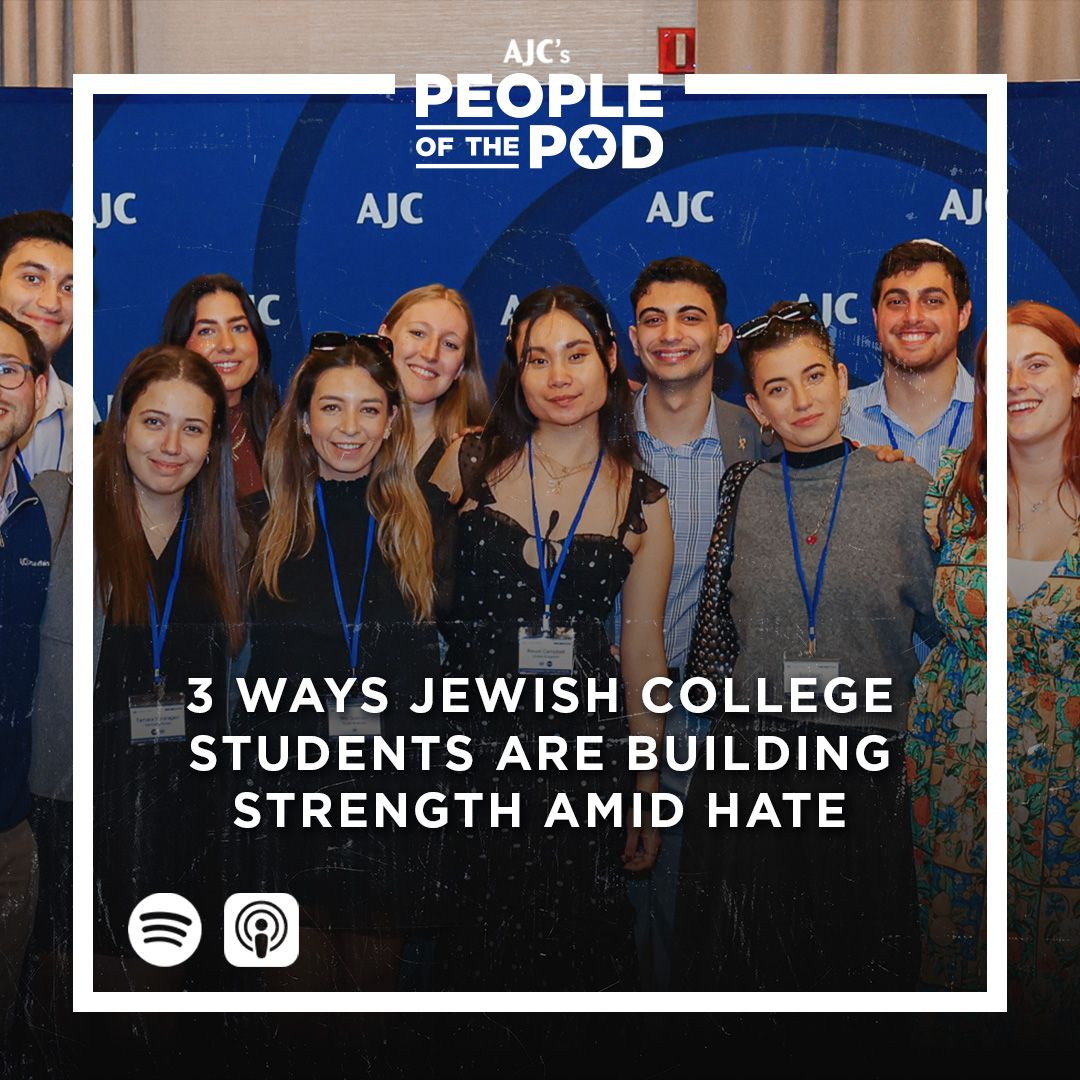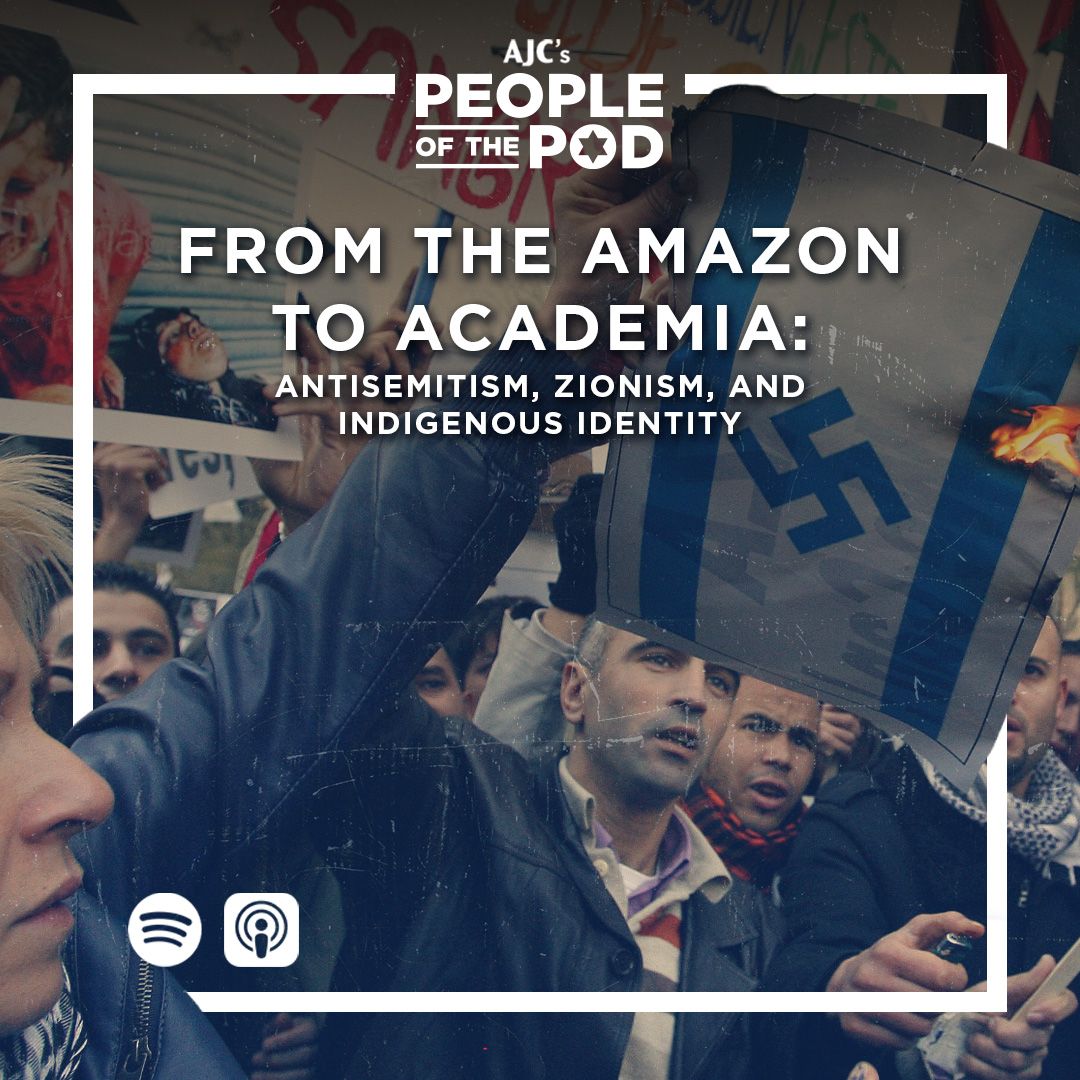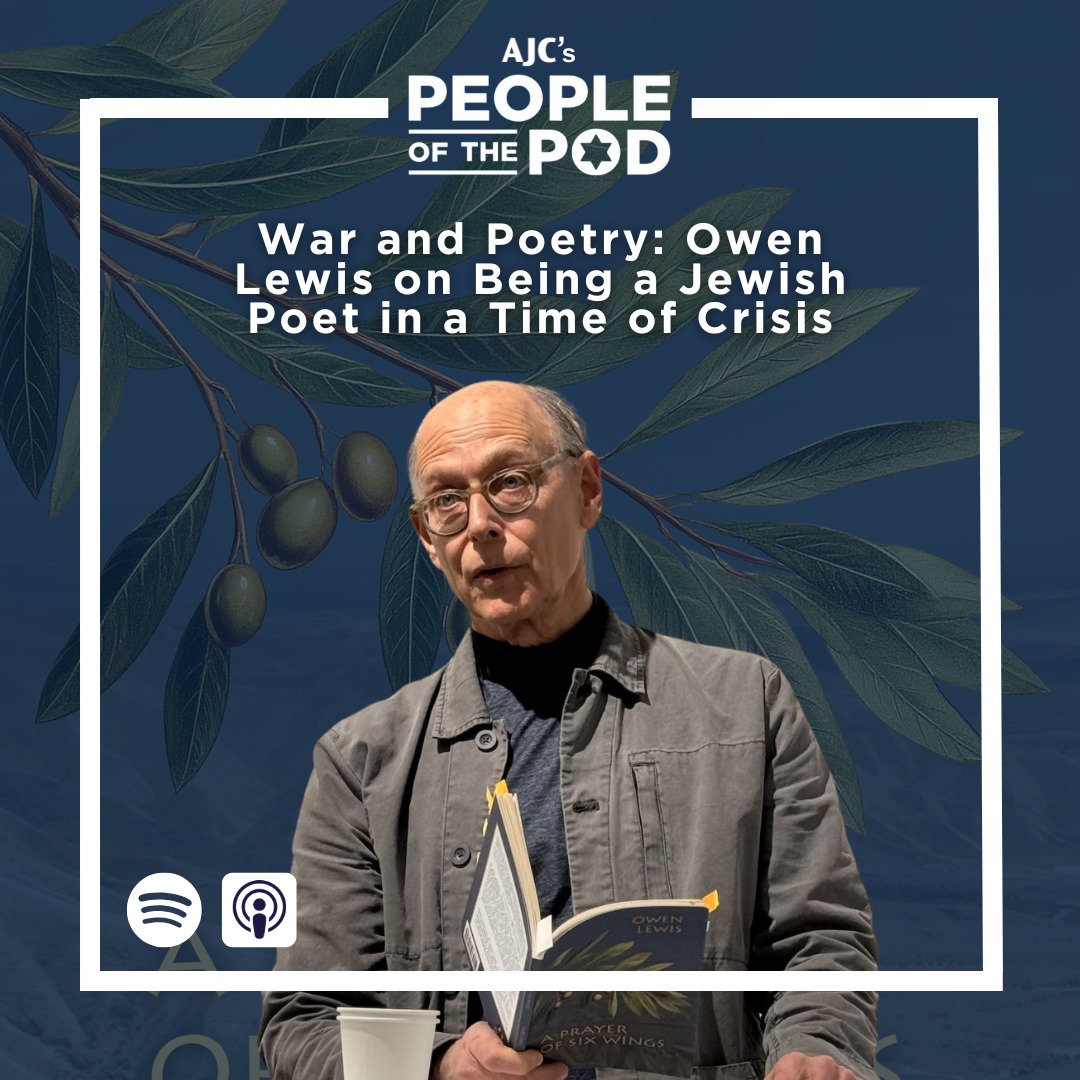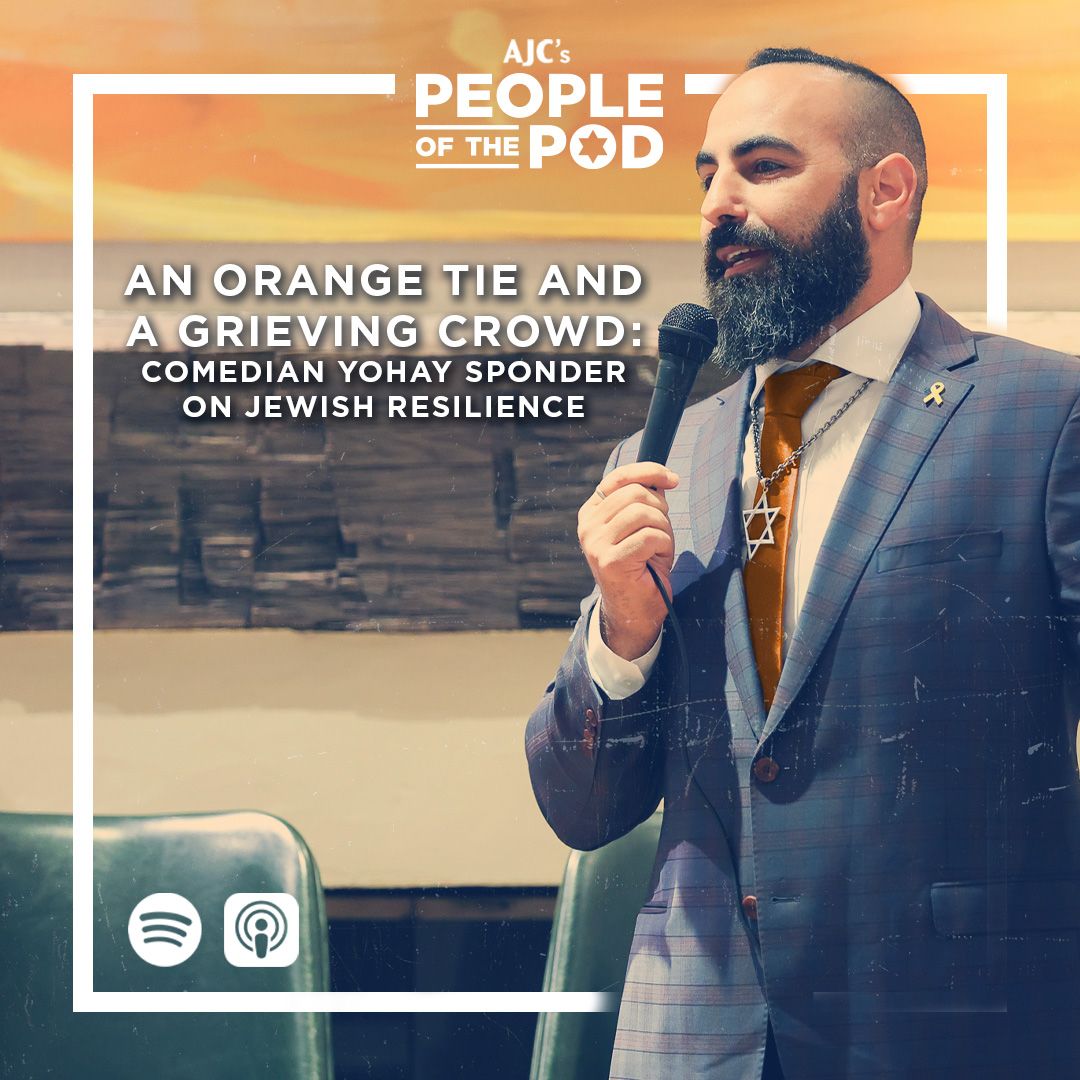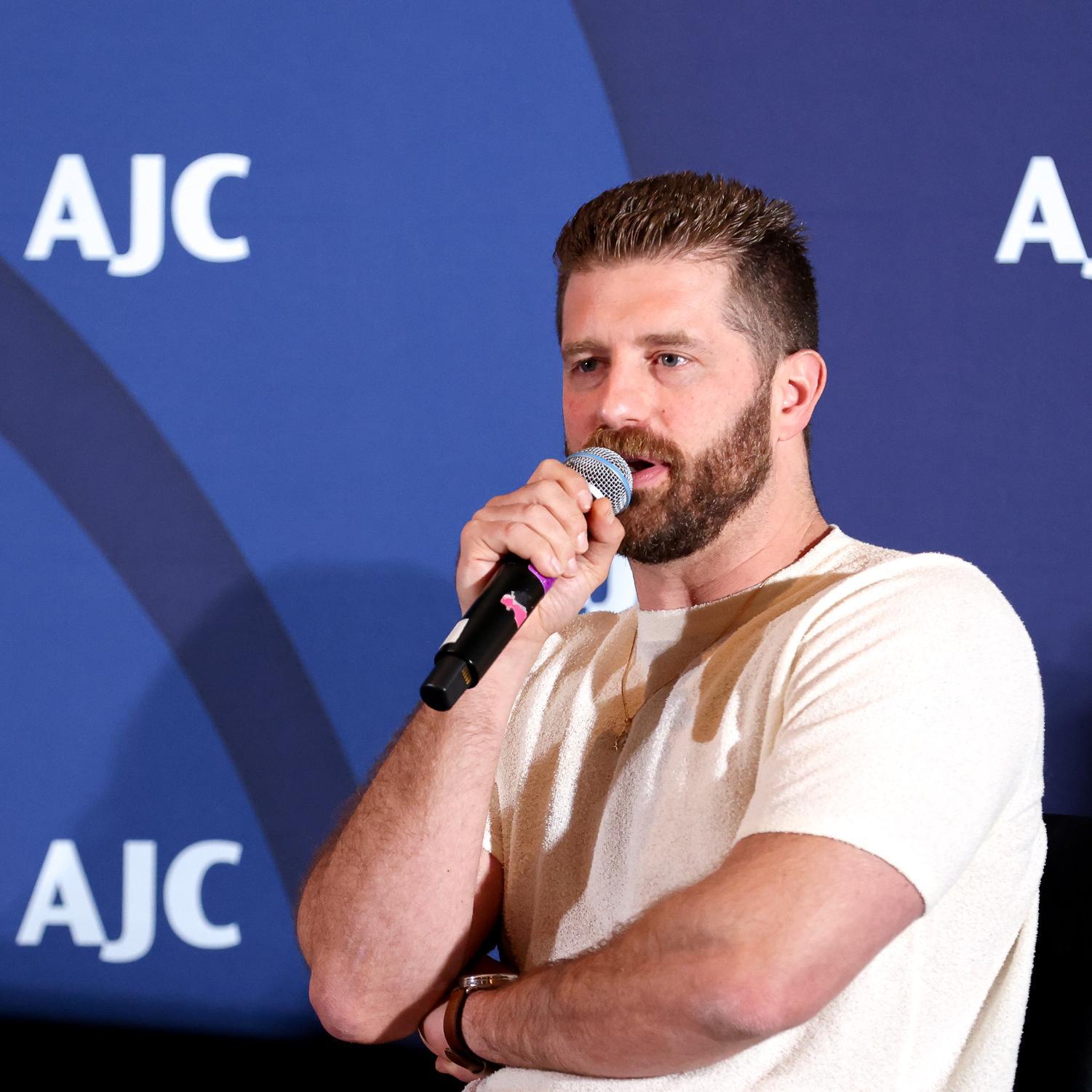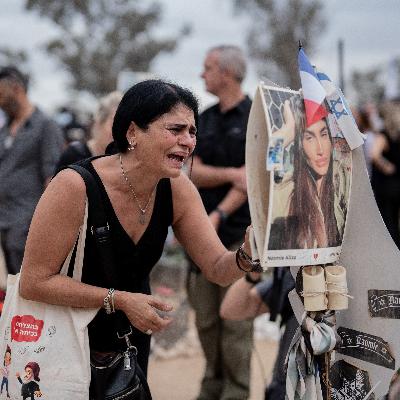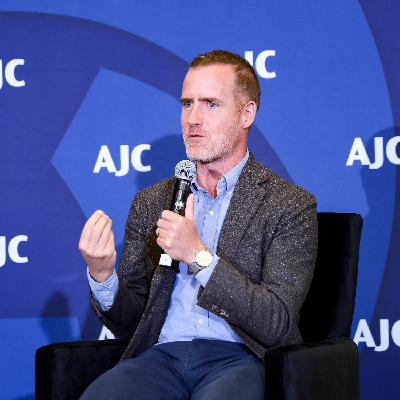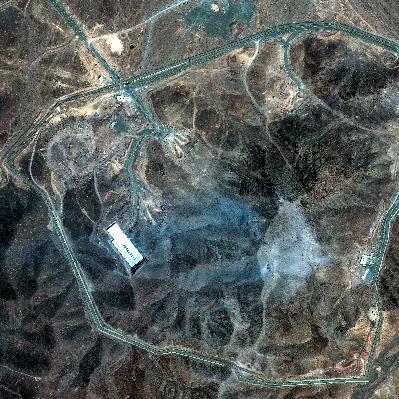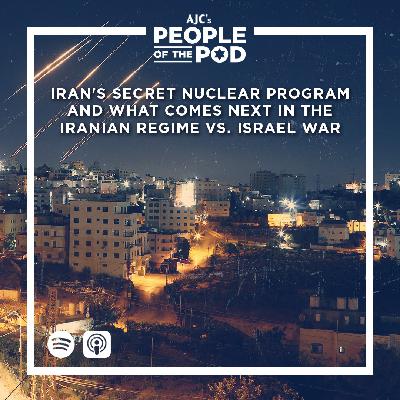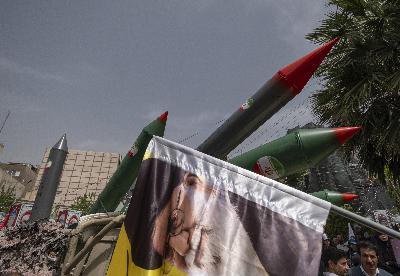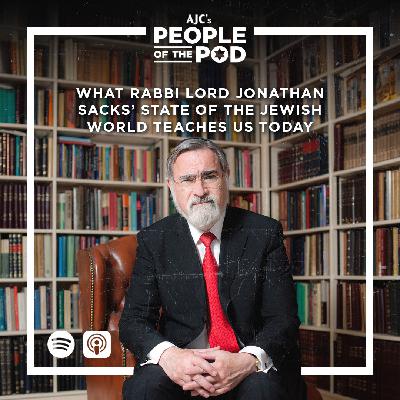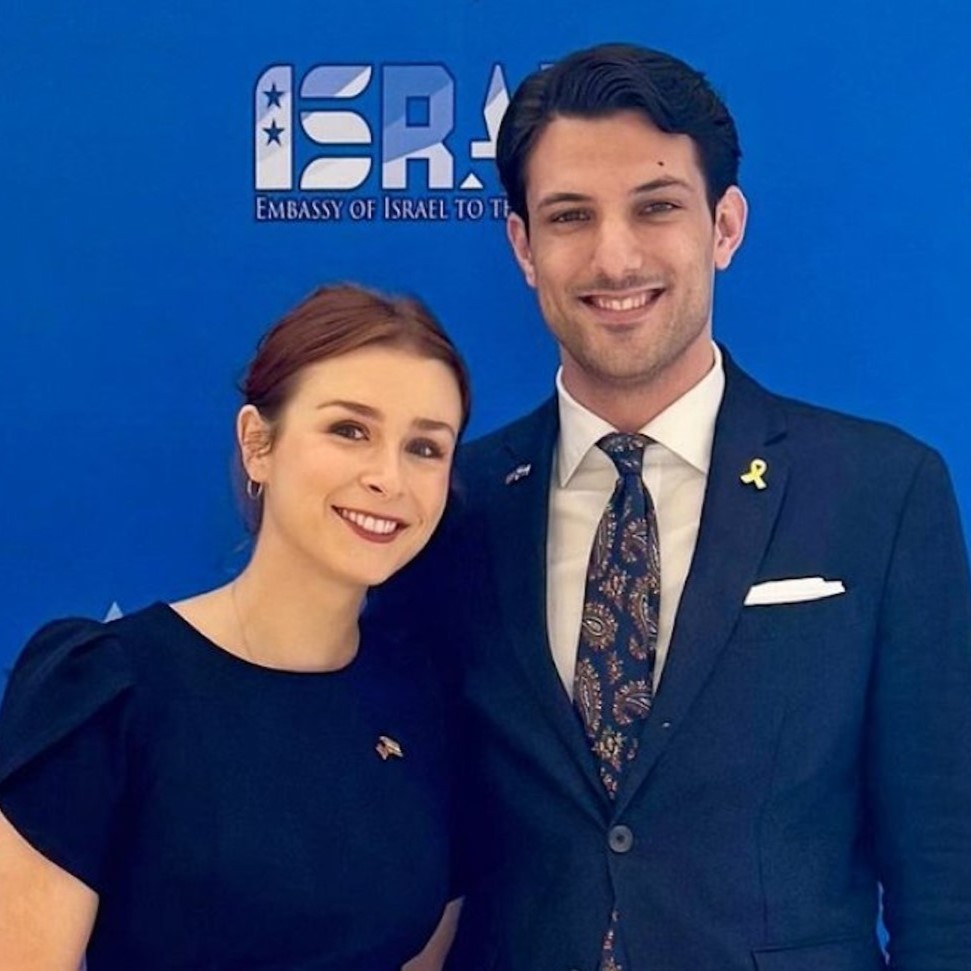Matisyahu's Message to His Fellow Jews and to the Israel Haters Trying to Cancel Him
Description
"The Jewish people don't really give up. They're fighters. … a vision of peace, and a vision of hope, and of empathy. I really, truly believe that that is at the core of who we are. And that is what we are actually fighting for."
Matisyahu's recent show in Chicago was canceled due to the threat of anti-Israel protests.
The Jewish American singer's music has evolved alongside his Jewish identity. But one thing has always been clear: He believes in Israel's right to exist. Because of that, he has faced protests at almost every show on his current national tour, and some have even been canceled.
Hear from Matisyahu on his musical and religious journey, especially since October 7, and what makes him Jewish and proud.
*The views and opinions expressed by guests do not necessarily reflect the views or position of AJC.
Episode Lineup:
-
(0:40 ) Matisyahu
Show Notes:
Song Credits, all by Matisyahu:
-
One Day
-
Jerusalem
-
Fireproof
Listen – People of the Pod on the Israel-Hamas War:
-
Unheard, Until Now: How Israeli Women Are Powering Israel's Resilience
-
152 Days Later: What the Mother of Hostage Edan Alexander Wants the World to Know
-
What It's Like to Be Jewish at Harvard Among Antisemites and Hamas Supporters
-
When Antisemites Target Local Businesses: How Communities Are Uniting in Response
Follow People of the Pod on your favorite podcast app, and learn more at AJC.org/PeopleofthePod
You can reach us at: peopleofthepod@ajc.org
If you've appreciated this episode, please be sure to tell your friends, and rate and review us on Apple Podcasts.
Transcript of Interview with Matisyahu:
Manya Brachear Pashman:
Matisyahu is a Jewish American reggae singer, rapper and beatboxer, whose musical style and genre have evolved alongside how he practices and expresses his Jewish identity. But one thing has always been clear. He believes in Israel's right to exist, and he has expressed that repeatedly since the October 7 Hamas terror attack on Israel.
Since then, he has performed in Jerusalem and Tel Aviv. He has performed for the families of hostages and for students at Columbia University as a show of solidarity for those who have faced a torrent of antisemitism there. But there are places where he has not performed, including Santa Fe, New Mexico, Tucson, Arizona and Chicago, but not for lack of trying.
Those shows were canceled by the venue's because of the threat of protests. Matisyahu is with us now to discuss these cancellations and what's behind them. Matis, welcome to People of the Pod.
Matisyahu:
Hello, People of the Pod.
Manya Brachear Pashman:
So first of all, I want to introduce you to those in our audience who might not be familiar with your music. And we'll start with the anthem that I associate most with you. And that is One Day. Can you tell us a little bit about how that song came about–when and why?
Matisyahu:
Well, that song was written in around 2010, I want to say or nine, maybe 2008 or nine. And I was working on my second studio album. It's called Light. And we had turned in the album and the new record executives didn't feel like we had any hits on the album. The album had been based on this story of Reb Nachman of Breslov called The Seven Beggars. And it was a bit of a concept album.
So I went to LA and I worked with a couple of writers and tried to write a hit song. And that's what we came up with was One Day, and that song got used in the Olympics in 2010, Winter Olympics on the NBC commercials. So that's kind of what propelled that song into popularity.
Manya Brachear Pashman:
Popular, yes. But what does One Day mean to you?
Matisyahu:
A lot of my music is very positive and very much connected to this vision of a Messianic future of peace. You know, at the time, I was very religious. And in my particular group, Chabad Hasidism, the idea of a Messiah was very prevalent in the philosophy.
I was living in a space of a vision of a future where the wolf lies down with the lamb and people turn their weapons into plowshares. And that was the thing that I was praying for and trying to envision daily. And so that was the main message of that song at the time.
Manya Brachear Pashman:
It is certainly something we've always needed, especially now.
You grew up in White Plains, NY, in the Reconstructionist tradition, I believe. You found your way to Chabad. Can you talk a little bit about where you are in your spiritual journey now, these days.
Matisyahu:
I went through a very, very intense relationship with Orthodox Judaism, Chassidus. I started from a home, from a Reconstructionist background, so not Chassidus, for anyone who doesn't know these terms. More of a reform kind of background. And I went to Israel when I was 16, on a Conservative trip where I spent three months there, which had a profound effect on me.
And then when I was in college, about 21, 20 years old or so, is when I started really exploring the more Orthodox side of Judaism, and started out with the Carlebach shul, on the Upper West Side, and his music and reading books about Shlomo Carlebach, and the type of person he was and what type of work he was doing. And then from there, I pretty much jumped into Chabad, and moved to Crown Heights and lived in the yeshiva there on Eastern Parkway for a couple of years. And all of that, sort of prior to Matisyahu the singer coming out.
And then I spent many years, within 10 years or so, sort of exploring Chabad and then Breslov and different types of Hasidism. Different types of Chassidus within that realm.
And I guess at some point, it started to feel a little bit, not constructive for me to be there and felt more claustrophobic. And I felt that I was not really connecting so much anymore with a lot of the ideas and a lot of the rules. And so I started to just kind of live more of like a normal life, I guess, or a non-religious life.
And I'm still doing my music and making my music and writing from a place of deep Jewish yearning, empathy, and hope, you know, and using lots of the canon of the Old Testament still, to use as metaphors in my lyric, writing, and stuff like that.
But more focused on more of a humanistic kind of approach to the world, less concerned with my religion, or God, or being Jewish and more concerned with, you know, writing about being a father or a husband, or dealing with addiction, or dealing with loneliness, or dealing with different ups and downs of life. So that for me was a process going through that over the last maybe 15 years or so.
And then after October 7, you know, I mean, I've had some issues before, in 2015, with the BDS. I was thrown off of a festival. And so there again, I felt a very strong sense of Jewish pride when that happened. And especially like, when I went to Israel, after that had happened, I felt this sort of new connection with Israelis in the sense that a lot of them, writers, singers, actors, whoever, get shut down when they go overseas to try to perform. And so I felt like I had a strong connection with them and understanding of what some of them go through. And I guess that only reinforced my connection with Israel.
Then after October 7 happened, it's been this very, very strong pull back towards feeling very Jewish and feeling like that is the center and the core of who I am, and especially right now, that's what feels the most powerful and authentic to me.
Manya Brachear Pashman:
So you have been to Israel since October 7, performing for soldiers on bases, hospitals, visiting some of the kibbutzim targeted by Hamas, the Nova festival site. Did it scare you to walk those sites? Can you share how you felt or what you took away from that experience?
Matisyahu:
I don't know that I was scared when I was there. I was obviously touched profoundly by the stories that I heard and what I saw firsthand, so it was more of a feeling of just destruction. And then just seeing these incredible human beings that had just survived and are just the most amazing people.
And then there was this feeling of hope and this feeling of wow, look how these people come together and how I'm a part of that, and that became a really strong place for me in terms of finding hope for my tour and going out into America. And dealing with cancellations and protesters and stuff l


